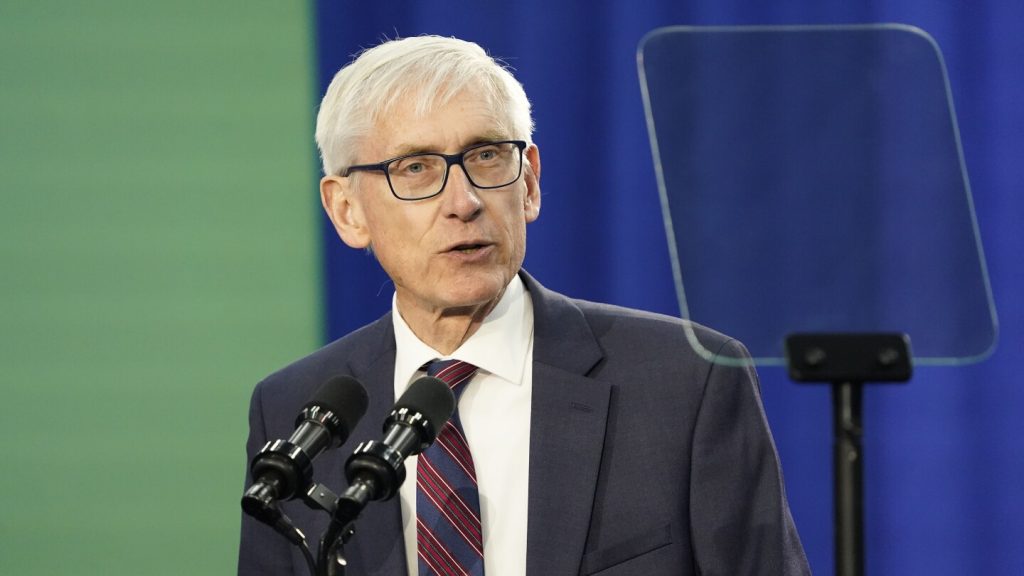The Wisconsin Supreme Court will consider a case filed by the state’s largest business lobbying group challenging Governor Tony Evers’ use of a partial veto to increase school funding over the next 400 years. The lawsuit argues that the governor exceeded his veto authority and that the action was unconstitutional. Evers’ spokesperson responded by accusing Republicans and their allies of attempting to take resources away from public schools, but did not address the claims of unconstitutionality. Wisconsin’s partial veto power has been subject to changes over the years, with court decisions narrowing the governor’s ability to use it to create new policies.
The lawsuit filed by the Wisconsin Manufacturers & Commerce Litigation Center contends that Evers’ partial veto is barred under a 1990 constitutional amendment adopted by voters. The lawsuit seeks to invalidate the governor’s veto and declare that the state constitution prohibits the governor from striking digits to create a new year or extending the duration of legislation beyond what was approved by the Legislature. The Wisconsin Senate attempted to override the veto in September, but the Assembly did not take it up. Republicans have proposed a constitutional amendment to prevent the governor from using a partial veto to increase any tax or fee.
Wisconsin governors, regardless of party affiliation, have historically used the broad partial veto power to shape the state budget. This practice has been described as a strategic maneuver between the governor and the Legislature. However, the recent lawsuit challenges the extent to which a governor can exercise this veto authority. The legal battle underscores the ongoing debate surrounding the balance of power between the executive and legislative branches in Wisconsin’s government. The state’s Supreme Court, currently controlled by liberals, will ultimately decide whether to hear the case before it goes through lower courts.
The lawsuit raises questions about the limits of the governor’s authority in using the partial veto power and the implications for future budget decisions. If successful, the case could set a precedent for how governors in Wisconsin can wield their veto power in the future. The outcome of this legal challenge could have far-reaching consequences for the state’s budget process and governance structure. As the legal battle unfolds, it is likely to attract significant attention from both supporters and critics of Governor Evers, as well as individuals and groups with a vested interest in the outcome.
The controversy over Governor Evers’ use of the partial veto highlights the broader political tensions in Wisconsin, where Republicans and Democrats have been at odds over budget and policy decisions. The legal dispute over the veto could further exacerbate partisan divides and complicate efforts to reach consensus on key issues facing the state. With the Supreme Court’s decision looming, all eyes will be on how the justices interpret the state’s constitution and the extent of the governor’s veto power. The outcome of this case could have significant implications for the future of governance and decision-making in Wisconsin, shaping the trajectory of state politics for years to come.


